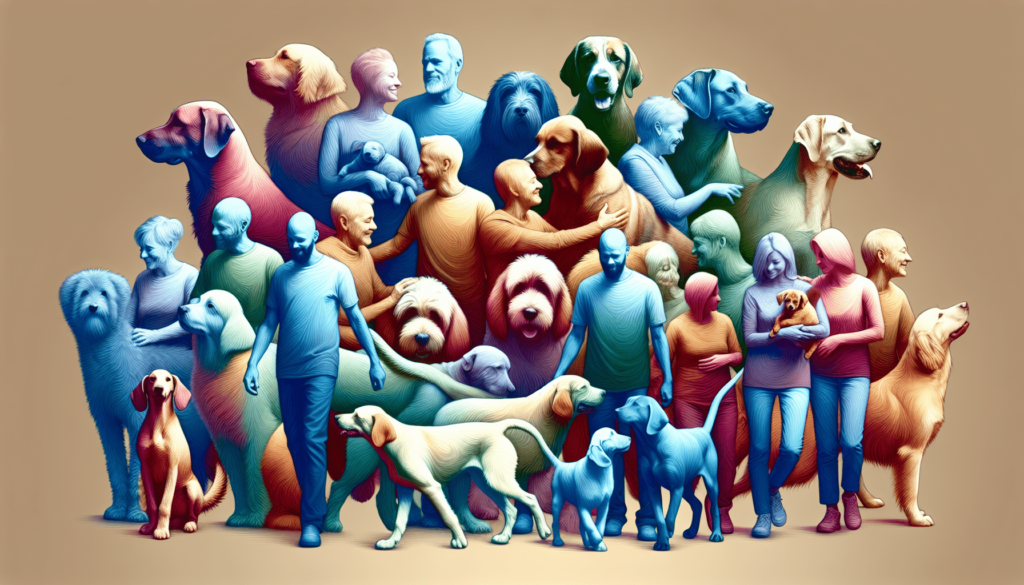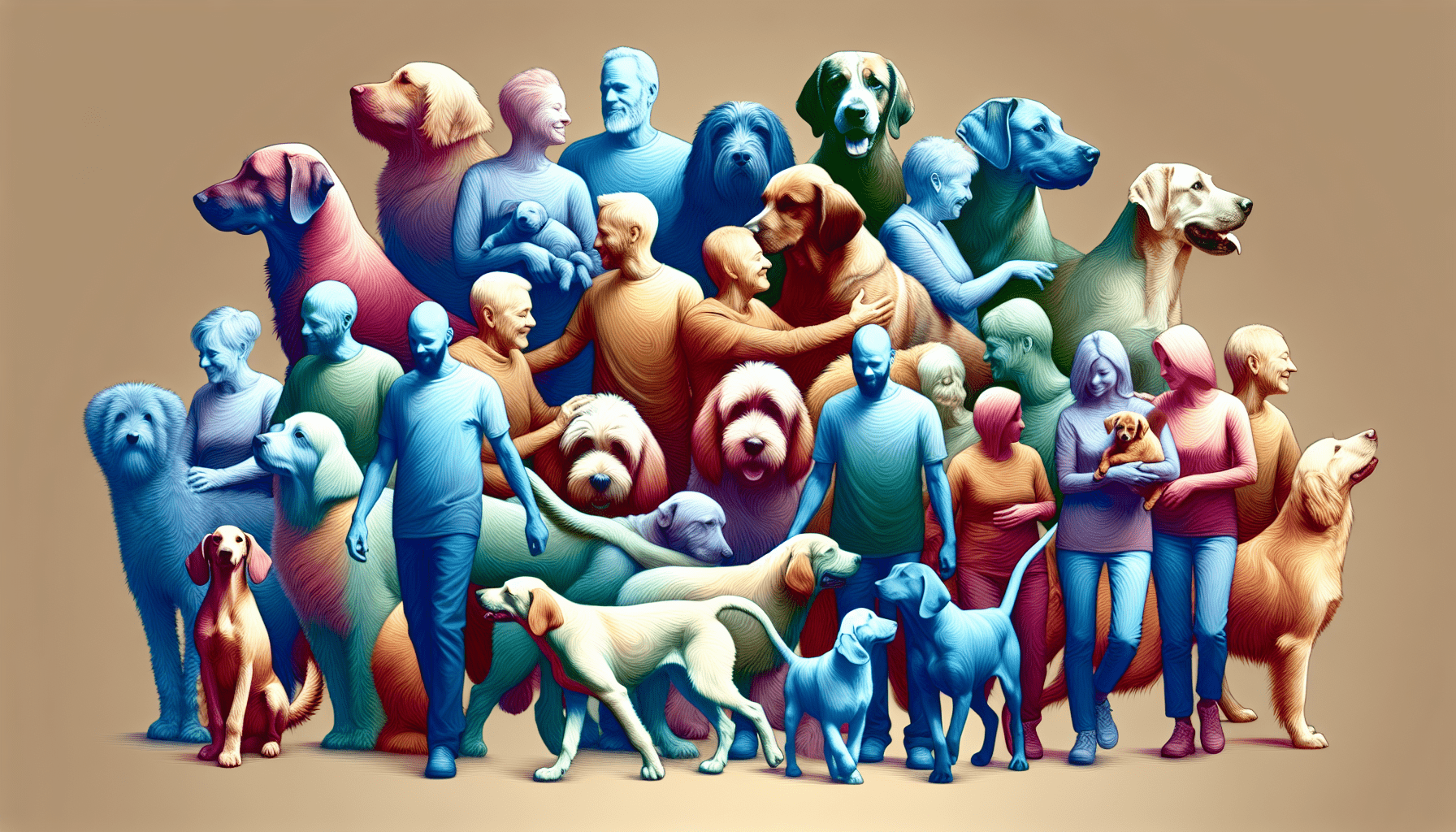Imagine having a furry friend by your side, always ready to offer unconditional love and companionship. In this article, we will explore the best dog breeds that are known for their unwavering loyalty and affectionate nature. Whether you’re looking for a playful companion or a calm and gentle presence, these breeds are sure to enhance your life with their warmth and companionship. Get ready to discover your perfect four-legged buddy!

Golden Retriever
Description
The Golden Retriever is a medium to large-sized dog breed with a friendly and lovable appearance. They have a well-proportioned body, with a broad head, kind eyes, and droopy ears. Their beautiful coat is typically golden in color and can vary from light to dark shades. Golden Retrievers are known for their friendly and intelligent expression, which complements their gentle and affectionate nature.
Temperament
One of the key traits that make the Golden Retriever an excellent companion is their wonderful temperament. They are friendly, outgoing, and highly sociable dogs that love being around people. Golden Retrievers are known for their patient, gentle, and tolerant nature, which makes them great companions for individuals and families of all ages. They are highly adaptable and are usually good around children and other animals.
Exercise Needs
Golden Retrievers are an active breed that requires regular exercise to keep them both mentally and physically stimulated. Daily walks, playtime in a fenced yard, or engaging in activities such as obedience training, agility, or swimming are essential for keeping their energy levels in check. Engaging in exercise not only helps them burn off excess energy, but it also contributes to their overall well-being and helps prevent behavioral issues that may arise from boredom or pent-up energy.
Grooming
When it comes to grooming, the Golden Retriever does require some maintenance due to their dense double coat. Regular brushing, ideally a few times per week, helps to keep their coat in good condition and prevents matting. Additionally, they tend to shed seasonally, so more frequent brushing during those times can help control the amount of loose fur in your home. Occasional bathing, as needed, and regular nail trims are also part of their grooming routine.
Training
Golden Retrievers are highly intelligent and eager to please, making them relatively easy to train. They respond well to positive reinforcement techniques and thrive in environments where they can participate in training activities. Basic obedience training is essential to ensure they have good manners and can be well-behaved members of your household. Consistency, patience, and using treats or rewards can go a long way in successfully training a Golden Retriever.
Socialization
Proper socialization is crucial for Golden Retrievers to develop into well-rounded and confident dogs. Exposing them to various people, animals, sights, and sounds from a young age helps them become more comfortable and less fearful in different situations. Puppy socialization classes and controlled introductions to other dogs can aid in the socialization process. Additionally, regular outings to parks or other dog-friendly places can provide opportunities for social interaction.
Labrador Retriever
Description
The Labrador Retriever, commonly referred to as Labs, is a medium to large-sized dog breed with a sturdy and athletic build. They have a broad skull, kind eyes, and floppy ears that add to their friendly and approachable appearance. Labs’ coats come in three primary colors: black, yellow, and chocolate. They are known for their friendly expression and strong, well-muscled bodies.
Temperament
Labrador Retrievers are renowned for their friendly and outgoing temperament, which makes them excellent companions for individuals and families alike. They are known to be gentle, affectionate, and patient dogs, making them excellent companions for children. Labs are also highly intelligent and eager to please, which contributes to their trainability and adaptability in various situations.
Exercise Needs
As an active breed, Labradors have high exercise requirements that need to be met to prevent boredom and potential behavioral issues. Daily exercise in the form of walks, runs, or playtime is essential to keep them physically and mentally stimulated. Labs are known for their love of water, so swimming or retrieving games can be an excellent outlet for their energy. Engaging in activities like obedience training or agility can also provide mental stimulation and further strengthen the bond between you and your Lab.
Grooming
Labrador Retrievers have short, dense coats that are relatively low-maintenance when it comes to grooming. Regular brushing, preferably once or twice a week, helps keep their coat in good condition and minimizes shedding. Labs are known to be heavy shedders, especially during shedding seasons, so regular brushing can help manage the amount of loose fur in your home. Occasional bathing, as needed, and routine nail trims are also part of their grooming routine.
Training
Labradors are intelligent and eager to please, which makes them highly trainable. They excel in various canine activities such as obedience, agility, and retrieving sports. Basic obedience training is crucial to ensure they have good manners and can be well-behaved members of your household. Labs thrive when positive reinforcement techniques, such as treats or praise, are used during training sessions. Consistency, patience, and providing mental stimulation are key factors in successfully training a Labrador Retriever.
Socialization
Socialization is an essential aspect of raising a well-rounded Labrador Retriever. Introducing them to various people, animals, and environments at a young age helps them develop confidence and adaptability. Puppy socialization classes, controlled interactions with other dogs, and outings to new places can aid in their social development. Given their friendly and sociable nature, Labs usually enjoy meeting new people and other animals when properly socialized.
(To be continued – Part 2)

